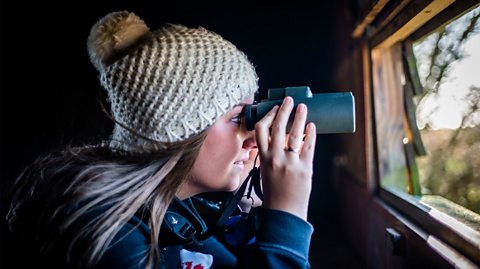Elle is 26 and the co-founder of a biodegradable wet wipe business.
Trained as a scientist, Elle spent most of her time shut away in a lab, until her friend’s blocked toilet catapulted her career in a whole new direction.
Elle: My name's Elle. I'm 26 and I'm a co-founder of a biodegradable wet wipe business.
So the business idea was started when a couple of friends and I met in the morning for breakfast and we were sort of sitting there about to tuck in and basically our friend turned round and said that he'd blocked his toilet just before we ate. He said that he'd blocked his toilet because he was using unflushable wet wipes and he'd caused a massive blockage in his house and it came all the way down through his building. And subsequently, we didn't want to eat anymore, funnily enough, but we kind of started thinking about what you could do. And we know that the impact on the environment is massive. And that's kind of where the idea sort of stemmed from.
Prior to my business, I had not really thought about wet wipes in general, I had a really strong sense of the environment and I knew that, in my house I was the eco-warrior. I was the person who was always sorting out the recycling. In terms of what we did, we kind of put our heads together and figured out if we could create a biodegradable flushable wet wipe.
I'm a scientist by trade, so I spent a lot of time in a lab by myself or with one or two other people. I always thought I'm going to stay as a researcher, find out the next cure for any sort of random disease I could think of or I could figure out. I never thought that I'd be thrown into this crazy world of business.
So in the first few stages of our company, it was mainly focused on research and development, really developing a viable product, whether it's passing asthma and allergy testing, skin testing and baby testing. We spent a lot of time going to sewage plants and wastewater treatment to see if the product actually breaks down and the theory behind it. But when it came to the actual "eureka moment", was when I looked in the lab and I found out that the actual wipes worked. When that happened, it was the most relief I've ever felt. It was… it's done. It's done!
I never thought I'd be contributing to sustainable businesses like this in any way. But now, looking back at the business that I have, I would never want to go into any other field at the moment. I love my job. I go to work and I enjoy it and I'm doing my bit for the environment, which is incredibly important to me.
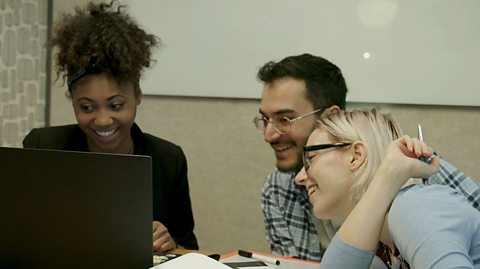
Elle's journey
Elle’s lightbulb moment happened over breakfast, when a friend shared that he’d blocked his toilet because he’d been flushing non-biodegradable wet wipes. Needless to say, no one had much of an appetite after this!
Elle was already a bit of an “eco-warrior” but her friend’s dilemma, coupled with her background in science, inspired her to find a solution. The aim? To develop a biodegradable, truly flushable wet wipe.
After months of hard work, tonnes of testing and lots of hanging around sewage plants, Elle and her team finally cracked it.


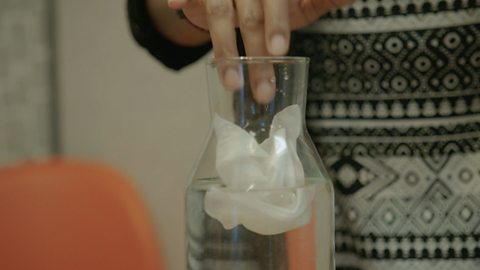
How can biodegradable wet wipes help the planet?
Non-biodegradable wet wipes don’t break down in water so they have to be filtered out at sewage works and sent to landfill sites. This is expensive and they can take years and years to break down.
Sometimes, wet wipes and other non-biodegradable waste, ends up stuck in the sewers causing massive obstructions known as ‘fatbergs’. Fatbergs are also expensive to remove.
In 2018, a fatberg was found in the London sewers that weighed 130 tonnes. It was the twice the size of the football pitch at Wembley and took nine weeks to get rid of.
Some wet wipes eventually wash up in rivers and on beaches. The tiny plastic fibres in the wipes can be ingested by fish and marine life, sometimes causing them to die, or entering into the food chain.
Biodegradable wet wipes, on the other hand, will break down in water which means no more nasty waste clogging up our sewers and oceans.


What to expect if you want to be a business owner
The salary and working hours when you own a business can vary enormously but what's most important is that you work hard and love what you do.
Working for yourself looks different for each person and each business, but in general it means you:
- run your own business and are responsible for its success
- can decide how, when and where you do your work
- charge an agreed, fixed price for your work
- sell goods or services to make a profit
- can hire people at your own expense to help you or to do the work for you.
You can be both employed and self-employed at the same time. You can work for your employer during the day, for example, and run your own business in the evenings and at weekends. It’s important to contact HMRC for advice if you’re not sure if you’re self-employed.
You can get help with setting up or developing your business, through the government’s business support services, for example, for advice about tax or about how to find funding to start your business.
This information is a guide (source: GOV.UK).
For careers advice in all parts of the UK visit: National Careers Service (England), nidirect (Northern Ireland), My World of Work (Scotland) and Careers Wales (Wales).

How origami inspired my sustainable fashion business. video
Find out why Ryan switched aeronautical engineering for running his own wearable technology company.
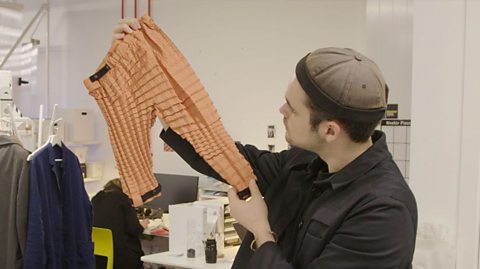
Georgie: marine conservationist. video
Find out how Georgie made her hobby into a career and followed her obsession with the ocean all the way to the sea bed.
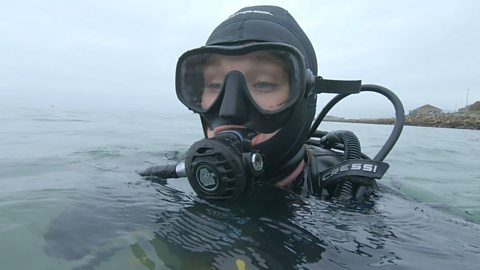
Dan: ornithologist. video
Find out how Dan uses nature to calm her anxiety, whilst also protecting the birds and wetlands she loves.
